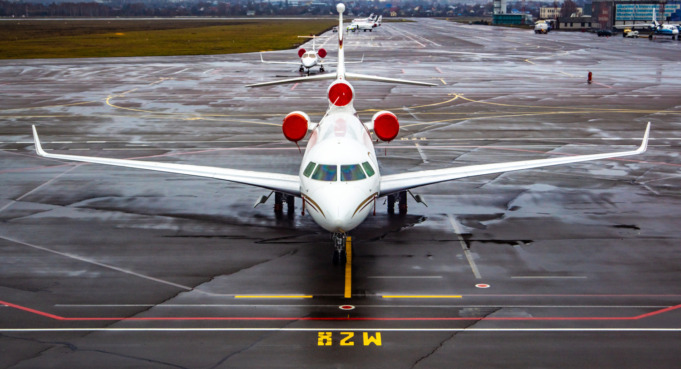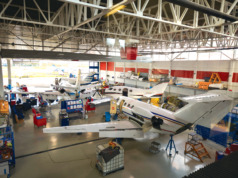With no quick resolution to the pandemic in sight, your aircraft could be parked longer than expected. When an aircraft is improperly stored, the costs associated with the corrective action could be significant, with additional costs – both tangible and intangible – having an impact on your asset’s market value at time of resale.
All business aircraft, engine, and auxiliary power unit (APU) manufacturers have established storage maintenance procedures outlined in their maintenance manuals. And if those procedures aren’t followed, expensive engine bearings, electronics, and components could suffer damage. On the resale market, an airplane stored for any period raises red flags. If the required storage and preservation maintenance isn’t done properly, you should ask some important questions about how that could affect the quality of the multimillion-dollar asset you’re about to buy or sell.
Parking any aircraft for the short term requires different maintenance procedures than that of storing an aircraft for the long term. For example, for aircraft storage lasting longer than six months, engine manufacturers advise expanded maintenance items, including replacing fuel in the fuel control with special lightweight oil; while other manufacturers recommend draining all fuel to prevent buildup of fungus and resulting corrosion. Since each aircraft model is unique, both short- and long-term storage require specific preservation actions to the airframe, engine, and APU.
In addition to the OEM’s recommendations, for every week or two that your aircraft is idle, its system should be “exercised.” This refers to operating every system as well as taxiing the aircraft, which allows for fluids running through the aircraft and the wheels moving to avoid the formation of flat spots on its tires. Such actions also should include the health of the aircraft’s APU, the tiny turbine engine that generates electricity on the ground for air-conditioning and engine starting. The APU should be run as often as the engines, and the simplest method is to start the APU and use that to start the engines, in conjunction with operating the airplane’s lavatory and environmental control systems as well as its SatCom and WiFi, in case there are software updates that need to be downloaded.
It’s also important to document in detail everything that happens to the aircraft while it is parked or stored. Doing so will help avoid problems when it comes time to sell the aircraft.
How can you prepare to initiate a longer-term preservation program? When grounding your aircraft for more than 30 days:
- Have your flight department evaluate all aircraft, engine, APU, and component manufacturer recommendations for storage.
- Keep the aircraft in a hangar if possible.
- If stored on ramp, cover windows and strobe lights. Consider local atmospheric conditions, as humidity will accelerate corrosion. Make sure all control locks or control column gust locks are installed to prevent movement of flight control surfaces.
- If required, install lock pins on emergency escape hatches.
- Install protective engine covers and, if required, moisture-absorbing desiccant bags.
- Drain fuel from engine fuel controls and install preservative oil.
- At least once a month, exercise the APU and engines for a specific interval of time as recommended by the OEM.
- Remove and store lead-acid and NiCad batteries.
- Lubricate flight control hinge pins.
- Keep tires inflated and rotate tires at specified interval or place aircraft on jacks.
- Coat exposed surfaces of hydraulic actuators with preservative hydraulic oil.
- Drain the toilet.
Whether you choose long-term storage or shorter-term ground runs, all the work must be documented in your logbooks. Required data include the duration of the engine runs and instrument indications verifying proper oil distribution, not just the fact that the run was accomplished. The more detailed information you put in the logbooks, the better off you will be in avoiding significant degradation to your aircraft’s value at time of sale. BAA
Joseph T. Zulueta, ASA, is Managing Partner of Aeronautical Systems. His 30+ years of expertise includes jet aircraft valuation consulting, technical inspections and retrospective, and current and future value appraising of aircraft assets.





